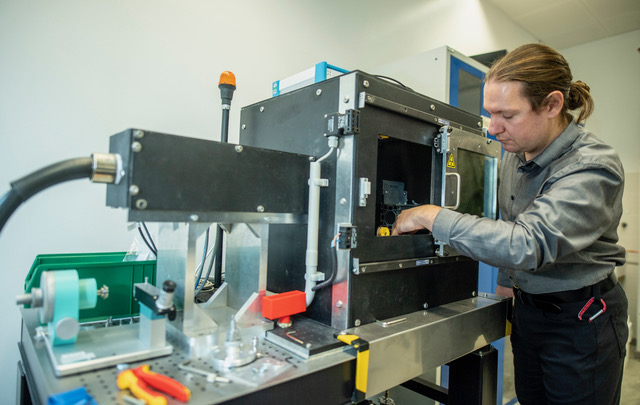Identifying defects in electronic devices in 3D
The key to more efficient semiconductor devices and a greater production yield, for example modern solar cells, is to minimize defects. The technology “Perform3D” (3D performance of electronic devices), which has been developed at DESY, is now entering the validation phase. The goal: reliable detection and thorough investigation of electronic defects in semiconductors using laboratory-scale equipment.
With Perform 3D it is possible to map out the electronic properties in previously inaccessible structures within an electrical device on a microscopic level and in 3D for the first time. These results will serve to improve the performance and reliability of the devices. The method was developed at DESY's large synchrotron X-ray light source PETRA III; tests there have proven its feasibility. The aim of the validation is to scale the method down to laboratory-based X-ray sources for application on site in other research facilities or by companies.
Initially, the project targets primarily the semiconductor and photovoltaic industries, as there is a particularly high demand for tracking down defects in semiconductor devices and solar cells that only show up on the smallest scales. Only if these can be eliminated, their full performance potential can be exploited. Until now, performance has often been optimized following "trial and error" principles. Perform3D enables developers to specifically detect, understand and ultimately eliminate the defects boosting the performance of (opto-) electronic devices. This applies to functionality as well as durability. The new technology can even detect defects that are buried under metallic contacts or in packaging structures.
The industrial partner for this project is Xnovo Technology, a Danish provider of innovative X-ray imaging techniques. The company already has experience in commercializing similar innovative procedures. The validation project with a total volume of approx. 1.47 million euros is funded with approx. 957,500 EUR by the Helmholtz Association (Impuls- und Vernetzungsfond) and has started on April,1st 2023 with a duration of two years.
published
- 2023/11/27
Press Contact
- innovation@desy.de


